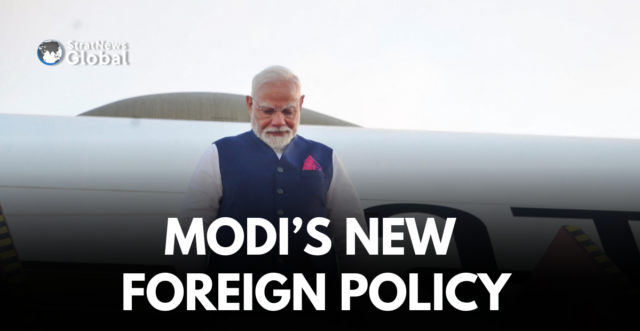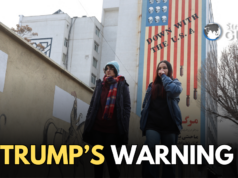Did Prime Minister Modi come up with a new definition of how India deals with the world? At a media event in Delhi on Friday, PM Modi said, “Previously, India’s foreign policy strategy used to be equidistant from all nations. Today, our foreign policy approach is of ‘equicloseness.’ We believe in walking closely with everyone.”
While diplomats, scholars of foreign policy and grammar nazis may offer their own take on that word in the days to come, there’s little doubt Modi was making a crucial point at a time when worldwide geopolitics is seeing an unprecedented churn:
In the first three months of the New Year, Modi has played host to the EU’s Ursula Von Der Leyen, Indonesia’s President Prabowo and New Zealand’s Prime Minister Luxon, while also being welcomed in capitals as far apart as Port Louis in Mauritius and Paris.
Add to that India’s diplomatic efforts as G20 President to admit the African Union. Next week he’ll be conferring with leaders of the BIMSTEC in Thailand and will then land in Colombo for consultations with President Anura Dissayanake.
Modi underscored that “equicloseness” is not just about becoming a world leader. It’s about a multipolar world or a world where power is distributed among several countries. Recall, External Affairs Minister Jaishankar’s comments during an interview with the Asia Society where he said, “The world should be multipolar because if you have 200 odd countries, surely it cannot be that one country or two countries or three countries have the right or frankly even the ability to control the 190 odd countries.”
India’s multipolarity approach includes launching global initiatives. The International Solar Alliance is expected to help nations across the globe tackle energy shortages and help strengthen the Global South. The India- Middle East Economic Corridor, launched in September last year, is expected to not only build agri-value chains between India and the Mediterranean but also strengthen global supply chains while offering a trade route alternative.
While these initiatives are expected to strengthen India’s position on the world map, it could also support Delhi’s drive to position itself as the voice of the Global South.





